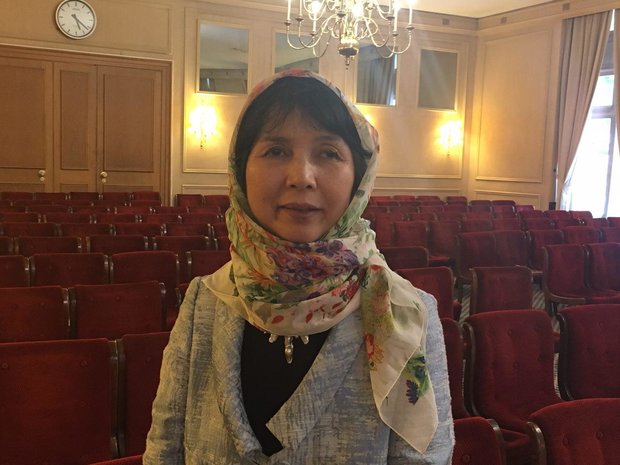In an exclusive interview with Mehr News correspondent on the sidelines of Iran-Japan Symposium on "Women, Peace and Sustainable Development", CEO of The Good Bankers Co., Ltd in Japan and an award winning economic expert Mizue Tsukushi presented her views on women's role in developing peace and security in a society, stressing that women are more communicative, they are more helpful and skillful than men in facing struggles in the world.
Noting that women across the world face similar struggles over being included in key decision-making processes, Tsukushi said the conditions for women in Japan is "very much like their counterparts in Iran."
She said the change of system is directly dependent on the women themselves. It is a long-term approach and has faced some struggles, however women can make changes to improve their own conditions, Tsukushi added.
Pointing to the growth in women's involvement in different political, economic and cultural positions in Iran, she confirmed they have witnessed a good growth in education and taking responsibility of jobs which were previously in hands of men. "I visited Iran in 1975, women in that time were in very different conditions, and everything has changed for them now. They are now more active, more involved, they are more successful now, however, there is a long road to the ideal status."
Emphasizing the role of women in provoking peace and security in a society, she said their direct involvement in decision-making processes can lead to having a more secure community.
On involving women in important tasks which belongs more to men, like police officers, she said the government must encourage the women to get involved in more important jobs, especially the ones which used to be attributed to men.
Tsukushi said appointing women as police officers can help reduce insecurity against women in a society. "If women get involved in security jobs, they can help other women, especially those victimized by harassment or domestic violence; they can feel more responsibility to report the cases and sympathize more easily which can make them more serious at least to pursue the cases and help the victims restore their dignity and achieve their legitimate right.
On the role of women in establishing peace globally, she said "Women are more communicative, they are more helpful and skillful than men in facing struggles in the world. They like being closer, they don't seek power like men do."
Women hold more ability to understand the situation of other people, she said, and also in nature they are more peaceful than men.
She referred to bonobo's society as an example, which is a kind of small species of chimpanzee, saying the researchers have found out that the bonobos society is led by women but chimpanzees are led by males. "Bonobos face few tensions in their society, however, chimpanzees experience more struggles and tenstion."
With regard to the question on how to make balance between job and motherhood duties, she suggested a long term basis in the life stage of women.
"Throughout women's life stages, they dedicate a time to their job and also to their activities in home, as a mother or wife. Although they are sometimes forced to sacrifice work for their kids, however, childhood does not last forever. They will find soon again their time for hard work. Motherhood experience will give a women more insight in understanding the nature of human being, because raising a child is to know about human beings. They will attain more skills for time management and better communication, motherhood is such a value to the growth of women themselves," she added.
She underlined, "society and good companies know it very well. Please believe me and let me again say to all our young sisters, don't be so rushed to come back to the workplace, just enjoy the motherhood which is the privilege given to women from our motherhood nature."
Mizue Tsukushi is the CEO of The Good Bankers Co., Ltd in Japan. Born in 1949, Kagoshima, she studied in Paris University and experienced a period at home as a housewife, she worked for the Swiss UBS Trust and Banking as a Deputy General Manager where she was in charge of institutional clients. In September 2005, she was awarded the Chief Cabinet Secretary’s Awards for outstanding Contributions to Gender Equality. She is also a member of the Japanese National Commission for UNESCO and the special advisory committees for several Japanese ministries such as Ministry of the Environment.
Interview by Lachin Rezaian
